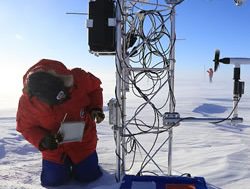 The ACT has joined a NSW Department and other States to ensure there’s a consistent approach to climate science and information around the nation as the risks of climate change continue to grow.
The ACT has joined a NSW Department and other States to ensure there’s a consistent approach to climate science and information around the nation as the risks of climate change continue to grow.
The newly named NSW and Australian Regional Climate Modelling project (NARCliM) – formerly the NSW and ACT Regional Climate Modelling project – now reaches from Sydney to Perth, including South Australia, Western Australia, the Murdoch University and University of NSW.
Director of Climate and Atmospheric Science in the NSW department, Matthew Riley said NARCliM uses the expertise of data specialists, climate scientists, modellers and science communicators to help Governments, business, scientists and the community to anticipate, manage and act on climate risks better.
“The NARCliM partnership expands on the existing NSW and ACT Regional Climate Modelling Project which began in 2011 to develop high-resolution regional climate projections,” Mr Riley said.
“This important work helps prepare for and build resilience to climate change,” he said.
“It allows us to better understand climate risks and natural hazards both now and into the future.”
He said NARCliM was helping address overall climate change risks.
“Through our work we are also leading national efforts to ensure a consistent approach to developing regional climate projections,” Mr Riley said.
“The interstate partnerships recognise the importance of collaboration across States and research bodies.”
He said that by working together everyone can ensure their stakeholders have the best available climate science and information for estimating likely impacts posed by a changing climate and opportunities to adapt.
“The Department’s climate scientists are already working on the next generation of regional climate projections for south-eastern Australia,” Mr Riley said.
“NARCliM2.0 will incorporate the latest Coupled Model Intercomparison Project Phase 6 global climate models as used by the Intergovernmental Panel on Climate Change and will capture climate change at finer resolutions,” he said.
“The NARCliM2.0 projections, which will use first-of-its-kind scientific methods to extrapolate data from global climate models, are expected to be available in 2023.”











